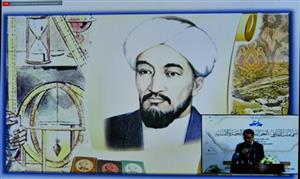- Main page
- News
KAZNU WILL COOPERATE WITH UNIVERSITIES OF EGYPT
3/15/2021
Rector of KazNU named after al-Farabi Zhanseit Tuimebayev took part in the scientific-practical conference "The contribution of Abu Nasr al-Farabi to the Islamic civilization", organized by the Islamic Academy of Sciences. The event, which was attended by famous Farabi scholars, philosophers and scientists, was held in Egypt.
Welcoming the participants of the conference, the rector of KazNU thanked the organizers and noted the importance and great contribution to the development of the philosophical thought of scientists of the East: Abu Nasr al-Farabi, Al-Khorezmi, Ibn Sina, Al-Bukhari and many others.
It is symbolic that the event took place on Egyptian soil, which is associated with the name of Sultan Beybars, a glorious ancestor from Desht-i-Kipchak. Sultan Baybars not only protected Egypt and the lands of Syria from the enemy, but also established the rule of the Mamluks. While governing the state, he contributed to the development of science and education.
The rector stressed that Egypt 30 years ago was one of the first Arab countries to recognize the independence of Kazakhstan. Since 1992, diplomatic, economic relations and cultural and social spheres have been developing between the two countries.
“Currently, we are interested in developing new ties in the field of education, science and enlightenment. Since 1991, our university bears the name of Abu Nasr al-Farabi and represents it with dignity at the world level. We aim to expand the space of scientific and educational cooperation, academic mobility, reach a qualitatively new level and become an advanced research center, ”the head of the university emphasized in his speech. Zhanseit Tuimebayev also noted that the conference will become an incentive for the active development of cooperation between states.
Famous Farabi scholars also spoke at the conference, who noted the importance of the heritage of Abu Nasr al-Farabi for the rapprochement of civilizations and different cultures, as well as the relevance of his philosophical views in the age of globalization.

